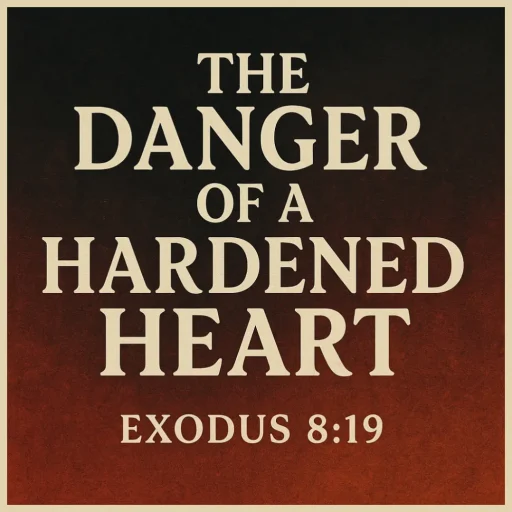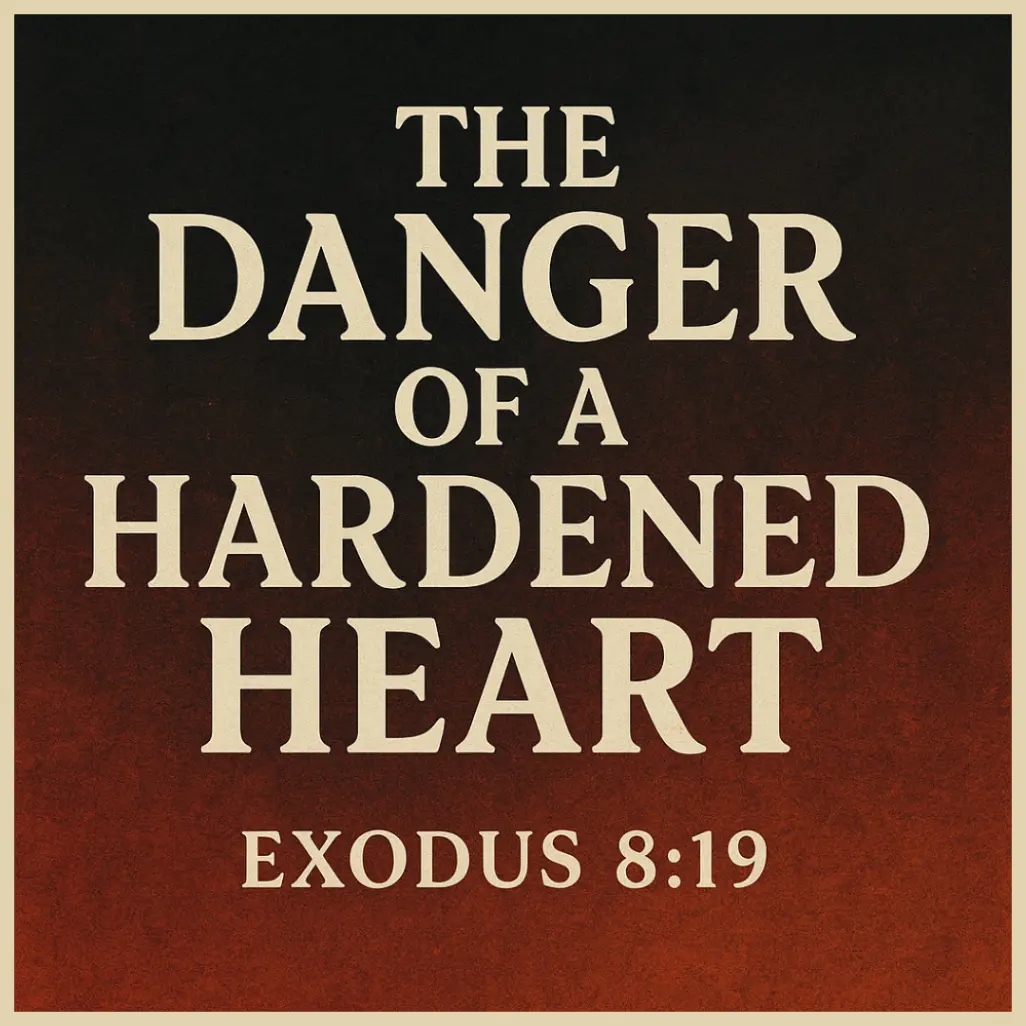the magicians said to Pharaoh, “This is the finger of God.” But Pharaoh’s heart was hard and he would not listen, just as the Lord had said.
Exodus 8:19 NIV
The story of Pharaoh in Exodus offers one of the clearest pictures of how a heart can resist God even in the face of undeniable truth. Through Moses and Aaron, the Lord displayed His power before Pharaoh and his officials — turning the staff into a serpent, transforming the Nile into blood, and sending frogs across Egypt. Each time, the Egyptian magicians managed to replicate the signs through their secret arts, and Pharaoh’s heart remained hardened.
It would be easy to assume that Pharaoh’s resistance stemmed from the magicians’ imitation of God’s works. Perhaps he reasoned that if his own people could perform similar wonders, then there was no need to yield to the God of Israel. Yet, as the narrative unfolds, Scripture reveals something far more profound.
When the fourth plague came — the plague of gnats — the magicians could no longer reproduce the sign. For the first time, they confessed openly before Pharaoh: “This is the finger of God” (Exodus 8:19). Even they recognised that the power at work was divine, not human.
But Pharaoh’s heart remained hardened. He ignored not only Moses and Aaron but also the testimony of his own magicians. His refusal to submit was no longer rooted in deception or ignorance — it was a deliberate act of rebellion. Pharaoh’s pride could not accept the truth that God’s authority surpassed his own.
This is the essence of a hardened heart: when the truth becomes clear, yet pride chooses denial. It is not that God hides Himself; rather, man refuses to yield.
In Pharaoh’s story, the hardening of his heart was not initially an act of divine judgment but a decision of his own will. He chose resistance over repentance, pride over surrender. Even when God’s mercy gave him opportunities to respond, he silenced conviction and strengthened his own stubbornness.
The plague of flies followed soon after. Once again, God’s power was undeniable — even Pharaoh’s palace could not escape the swarm. For a moment, Pharaoh appeared to soften. He offered compromises, suggesting that the Israelites could worship within Egypt, and later allowed them to go, but “not far.” Yet, his words were still an attempt to remain in control. He wanted partial obedience, not full surrender.
Partial obedience, however, is still disobedience. Pharaoh’s bargaining revealed a heart that sought to manage God rather than submit to Him. And once relief came, his pretence of humility vanished.
The true tragedy of Pharaoh’s story is not the plagues themselves but the wasted opportunities for repentance. Every sign of God’s power was also an invitation to bow — but he refused. The longer he resisted, the harder his heart became, until repentance was no longer desired.
As believers, this calls for self-examination. We may not stand before burning bushes or mighty plagues, but God still reveals His truth to our hearts through His Word and Spirit. How we respond matters deeply. Each time we ignore conviction, delay obedience, or justify partial surrender, our hearts grow a little less sensitive to His voice.
Living It Out
Let every revelation of God’s truth draw you closer, not colder. When the Spirit convicts, respond quickly. When the Word exposes pride or compromise, humble yourself before God.
Pharaoh teaches us that the greatest danger is not external opposition but internal resistance — the quiet, steady refusal to yield when God calls.
May our hearts remain tender and teachable before the Lord, always ready to say, “Yes, Lord,” before excuses or pride can speak.

